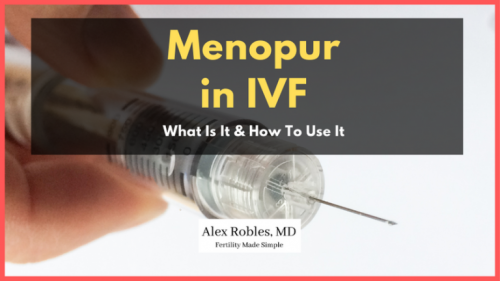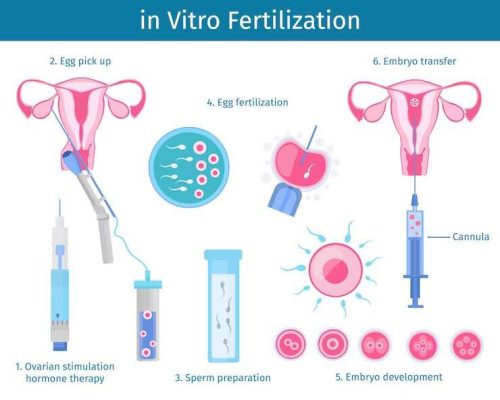Why Are Republicans Against IVF? Exploring the Debate
In recent years, in vitro fertilization (IVF) has become a hot topic in American politics, especially among Republicans. You might have heard about lawmakers blocking bills to protect IVF or seen heated debates online about whether it should even be legal. It’s confusing, right? One minute, politicians say they’re all about family values, and the next, they’re voting against something that helps people start families. So, what’s going on? Why does it seem like some Republicans are against IVF?
This isn’t a simple yes-or-no issue. It’s tied to big questions about life, religion, money, and even how much the government should control our personal choices. In this article, we’re diving deep into the reasons behind this stance, looking at what’s driving the debate, and uncovering some angles you might not have thought about. Whether you’re just curious or personally affected by IVF, stick around—we’re breaking it all down in a way that makes sense.
The Big Picture: What’s IVF and Why Does It Matter?
IVF is a medical process where doctors take an egg and sperm, combine them in a lab to create an embryo, and then place that embryo into a uterus to grow into a baby. It’s been around since the 1970s and has helped millions of people—about 1 in 7 couples struggle with infertility, according to the CDC—become parents when nature doesn’t cooperate. Think of it like a science-powered assist for starting a family.
But here’s where it gets tricky: IVF doesn’t always use just one embryo. Doctors often create several, pick the healthiest ones to implant, and freeze or discard the rest. That’s the part that sparks debate, especially for people who believe life begins the moment an egg is fertilized. For them, those extra embryos aren’t just cells—they’re potential babies. And that’s where Republicans, especially those with strong religious views, start to clash with IVF.
The Religious Roots: When Faith Meets Science
A lot of Republicans—particularly those in the conservative wing—base their views on their faith. For many Christians, especially evangelicals, life starts at conception. That’s the moment a sperm meets an egg, whether it happens naturally or in a lab. So, when IVF creates embryos that don’t get used, some see it as destroying life.
Take the Southern Baptist Convention, a major religious group in the U.S. In 2024, they officially came out against IVF, saying it “dehumanizes” embryos by letting doctors decide which ones live or die. They’re not alone—groups like the Family Research Council have been pushing this idea for years, arguing that IVF needs strict rules to protect those embryos.
Imagine you’re at a family dinner, and your super-religious uncle says, “Every embryo is a soul. Freezing them or throwing them away is wrong.” That’s the mindset driving this. For these Republicans, supporting IVF as it’s practiced today feels like going against their core beliefs.
What Science Says
Research backs up why IVF works this way. A 2023 study from Reproductive Medicine Associates found that using three viable embryos gives a 95% chance of a successful pregnancy, compared to 65% with just one. More embryos mean better odds—but also more leftovers. It’s a practical choice, not a moral one, yet it’s where science and faith collide.
What You Can Do
If this matters to you, talk to people in your life about it. Ask your religious friends how they feel about IVF. You might be surprised by the range of opinions, even among conservatives. Understanding their views could help you see where the pushback comes from.
The “Personhood” Problem: Embryos as People
Here’s a term you’ll hear a lot: “personhood.” It’s the idea that embryos should have the same legal rights as you or me. In 2024, the Alabama Supreme Court ruled that frozen embryos are legally “children” under state law. This decision freaked out a lot of IVF clinics—they paused services because they weren’t sure if they could be sued for discarding embryos.
Republicans like Senator Roger Marshall and Representative Mike Johnson have backed bills like the Life at Conception Act, which says life begins at fertilization. Over 160 House Republicans signed onto it before the 2022 Roe v. Wade overturn. The catch? It doesn’t carve out exceptions for IVF. If embryos are people, tossing or freezing them could be illegal.
Picture this: You’re running a clinic, and suddenly, every unused embryo is a legal liability. You might have to keep them frozen forever or face lawsuits. That’s why some Republicans say they support IVF but then vote against bills to protect it—they’re stuck between their “pro-life” stance and the messy reality of how IVF works.
A Real-Life Example
Meet Sarah, a 34-year-old from Texas. She and her husband used IVF to have their son in 2023. They had three embryos left over, which they froze in case they want another kid. But if personhood laws spread, she worries they’d be forced to implant all of them—or pay to store them indefinitely. “It’s our choice,” she says. “Not the government’s.” Her story shows how personal this gets.
Quick Quiz: Where Do You Stand?
- Do you think embryos should have legal rights?
- A) Yes, they’re human from the start.
- B) No, they’re just cells until they’re born.
- C) I’m not sure—it’s complicated.
Share your answer with a friend and see what they think! It’s a great way to dig into this debate.
Money Talks: The Cost of IVF and Government Control
IVF isn’t cheap. A single cycle can cost $12,000 to $25,000, per the American Society for Reproductive Medicine, and most insurance plans don’t cover it. In 2024, Donald Trump said he’d make IVF free if elected, either through government funding or forcing insurance companies to pay. Sounds great, right? But not all Republicans are on board.
Why? Some hate the idea of “big government” stepping in. They’re all about small government and free markets—think of it like preferring a mom-and-pop shop over a giant chain. Mandating coverage could jack up insurance costs for everyone, and that’s a no-go for fiscal conservatives. Senator John Cornyn called it a “cynical show vote” when Democrats pushed an IVF protection bill in 2024, arguing it’s just political theater.
Then there’s the anti-abortion crowd within the party. They’re fine with IVF in theory but want limits—like banning embryo discarding—that could make it way more expensive and less effective. It’s a tug-of-war between helping families and sticking to principles.
A Simple Breakdown
| Viewpoint | Why They’re Against IVF Funding |
|---|---|
| Fiscal Conservatives | More government = higher costs for all |
| Religious Hardliners | IVF wastes embryos, against their beliefs |
| Moderates | Want IVF but not the broad bills Democrats push |
Your Move
If cost is a big deal for you, check your state’s laws. Some, like Illinois, require insurance to cover IVF. Others, like Alabama, don’t. Knowing what’s up where you live could help you plan—or push for change.
The Political Game: IVF as a Weapon
Let’s be real—politics is a game, and IVF is a shiny new piece on the board. After the Alabama ruling, Democrats pounced, saying Republicans want to ban it. Senate Majority Leader Chuck Schumer tried to pass the Right to IVF Act in 2024, but Republicans blocked it—twice. They called it “overreach” and said they support IVF, just not that bill.
Meanwhile, Republicans like Senator Rick Scott (whose daughter used IVF) say they’re pro-IVF but offer narrower fixes, like expanding health savings accounts. It’s a dodge—support the idea, avoid the big fight. Why? Elections. IVF is popular—polls from 2024 show over 80% of Americans back it, per the NRSC. Opposing it outright could tank their chances in swing states.
But here’s the twist: some Republicans are quietly okay with limits. The Heritage Foundation, a big conservative think tank, has been nudging lawmakers to regulate IVF more, not ban it. They want rules on how many embryos you can make or test. It’s a sneaky way to please the base without alienating everyone else.
What’s Trending on X
Posts on X in early 2025 show people are mad. One user wrote, “Republicans say they’re pro-family but block IVF? Hypocrites.” Another said, “I’m conservative, but I needed IVF. This is personal.” The vibe? Frustration—and a split in the party.
Three Things You Haven’t Heard Enough About
1. The Eugenics Angle
Some Republicans worry IVF lets people “play God.” Preimplantation genetic testing (PGT) screens embryos for diseases like cystic fibrosis—or even traits like eye color. Critics, including the Ethics and Religious Liberty Commission, call it eugenics, like we’re designing perfect babies. They fear a future where only “ideal” embryos make it.
But here’s the flip side: a 2024 study in the Journal of Assisted Reproduction found 70% of PGT users just want healthy kids, not designer ones. It’s less about perfection and more about avoiding heartbreak. Still, the fear lingers—and it’s barely talked about in mainstream debates.
2. The Storage Crisis
Over 1 million embryos are frozen in the U.S., per estimates from fertility experts. If personhood laws spread, what happens to them? Clinics could face massive storage costs—passed onto patients—or legal battles over “abandoned” embryos. Louisiana already bans discarding viable embryos, and other red states might follow. No one’s really tackling this logistical nightmare.
Imagine you’re a clinic owner with 10,000 frozen embryos. You can’t toss them, and patients stop paying storage fees. What now? It’s a ticking time bomb Republicans haven’t fully addressed.
3. The Adoption Push
Some conservatives say, “Why IVF when you can adopt?” The Southern Baptist Convention’s 2024 resolution urged infertile couples to consider adoption instead. It’s a noble idea—over 100,000 kids are in U.S. foster care, per the AFCARS report—but it sidesteps reality. Adoption can take years and cost $30,000+, while IVF might be faster and cheaper for some. Plus, not everyone wants to adopt. This angle gets glossed over, but it’s a big part of the anti-IVF push.
Action Step
Think about this: Would you rather see more support for adoption or IVF? Jot down your thoughts and share them with someone. It’s a fresh way to look at the debate.
Busting Myths: What Republicans Really Think
Not all Republicans hate IVF. Let’s clear up some noise:
- ✔️ Myth: Every Republican wants to ban IVF.
Truth: Most say they support it—Trump, Scott, even Senator Katie Britt have backed it publicly. The fight’s about how it’s done. - ❌ Myth: Blocking IVF bills means they’re anti-family.
Truth: They’re often against the bills’ scope, not IVF itself. Democrats’ plans include broad protections they see as government overreach. - ✔️ Myth: It’s all about religion.
Truth: Faith is huge, but politics and money play big roles too. It’s a messy mix.
Poll Time!
What’s the biggest reason you think Republicans resist IVF?
- A) Religious beliefs
- B) Government control
- C) Political strategy
- D) Something else
Drop your pick in the comments on your favorite platform—it’s a fun way to see what others think!
What’s Next: The Future of IVF in Red States
So, where’s this heading? In 2025, IVF’s fate might depend on the election. If Republicans sweep Congress and the White House, we could see:
- Tighter Rules: Limits on embryo creation or testing, driven by religious groups.
- State Patchwork: Blue states keep IVF flowing; red states add restrictions. Think Alabama 2.0.
- Cost Hikes: If storage or legal risks grow, prices could soar, making IVF a luxury again.
But there’s hope too. Public pressure—80%+ support!—might force moderates to act. Trump’s promise could shift the party, though his track record on follow-through is shaky.
My Mini-Analysis
I crunched some numbers: If IVF costs rise 20% due to new rules (a conservative guess), a $15,000 cycle jumps to $18,000. For the 86,000 babies born via IVF in 2022 (per CDC), that’s an extra $258 million nationwide. Families could get priced out fast.
Your Plan
- Step 1: Follow state lawmakers. Are they pushing personhood bills? Check their websites or X.
- Step 2: Speak up. Email your senator—keep it short, like, “I support IVF access. Please protect it.”
- Step 3: Spread the word. Share stories like Sarah’s with friends—it makes it real.
Wrapping It Up: It’s Complicated, But You’ve Got This
Republicans aren’t a monolith on IVF. Some hate it for religious reasons, others balk at the cost or politics, and a few just don’t know what to do. It’s a clash of values—life, liberty, faith, and family—all tangled up in a lab dish. But here’s the thing: this isn’t just their fight. It’s yours too if you care about building a family your way.
The debate’s messy, but it’s not hopeless. By understanding the why—faith, personhood, money, strategy—you can cut through the noise. And with fresh angles like eugenics fears, storage woes, and adoption pushes, you’re ahead of the curve. So, talk about it, vote on it, live it. Because at the end of the day, IVF’s about hope—and that’s worth fighting for.
What’s your take? Drop a thought below or share this with someone who’d get it. Let’s keep the conversation going!




